Donald Trump Is back in power—Why didn’t more people join the Women's March this year?
“I am feeling the fatigue and weight of the challenge ahead of us, when it feels like we have already been fighting for so long.”
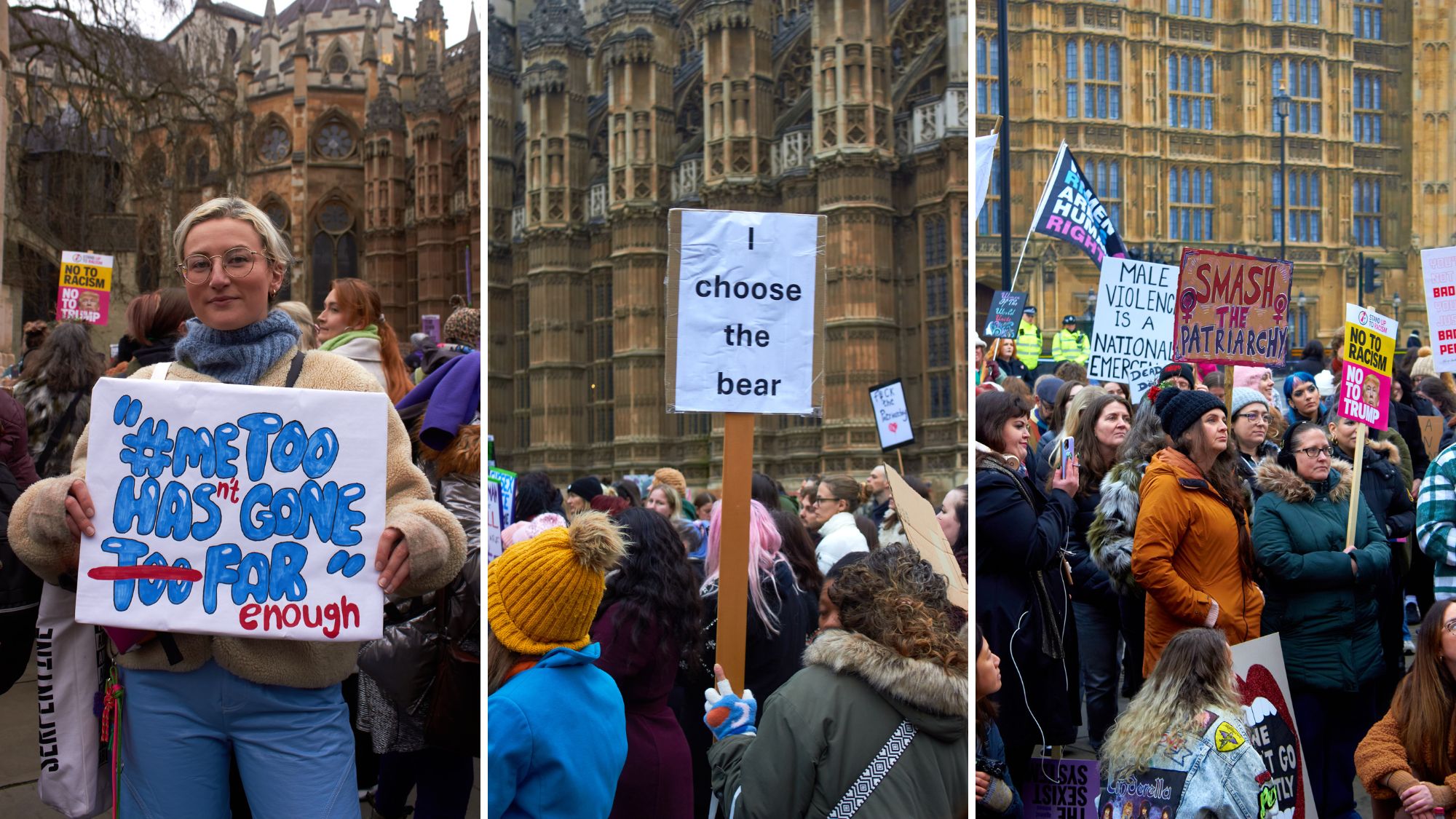

I joined 1 million people worldwide to march against Donald Trump’s presidency in 2017. Eight years later, there were just 1,000 of us in London. Where has the energy gone?
On a frigid January afternoon in 2017, I joined 100,000 people outside the American Embassy to show solidarity with women in the States and join the #NotMyPresident rallying cry. The mood then felt defiant and galvanising, the charged energy fired us up despite the blistering cold.
“I had just come back from three months travelling around America in 2016, and I was there when Donald Trump won the election”, remembers Eliza Hatch, an activist and TEDx speaker who joined the march. Hatch was so fired up by the movement, that she began documenting experiences of sexual harassment in public places. The photo series, called Cheer Up Luv, turned into a feminist platform and today has 169k followers on Instagram alone.
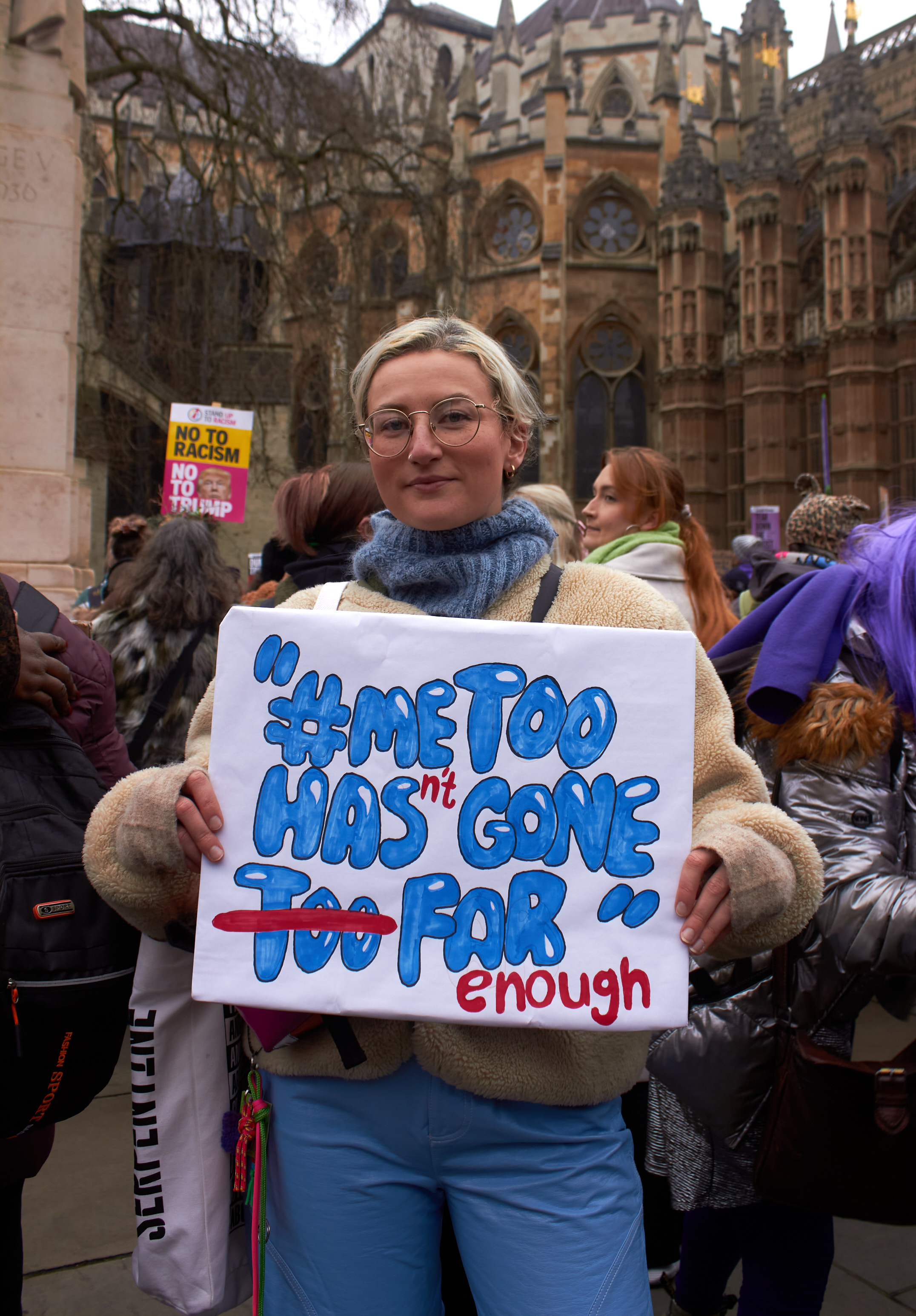
Eliza Hatch at the London Women's March
Eight years on and Trump has again dashed any dreams of America swearing in its first-ever female president (first Hillary, now Kamala), yet unlike before, just 1,000 people showed up to Saturday’s Women’s March. Where did all the energy go?
“We couldn’t move due to the number of people there,” remembers Elainea Emmott of the 2017 protest, adding: “On the tubes, I could feel a palpable change and energy.” Emmott’s work as a protest photographer started at the 2017 Women’s March in London and she worked with the organisation for five years covering weekly marches.
Emmott, whose photographs have appeared in the Together We Rise book alongside essays by Ashley Judd, Roxane Gay, and Jia Tolentino, thinks that the earlier outpouring of feminist support was because “Trump represented an unknown, [he] felt like a bigger threat with all of his “grab them by the pussy” and “angry women” rhetoric.”
A post shared by Elainea Emmott 🇯🇲 🇬🇧 (@emmottelainea)
A photo posted by on
And yet, there’s still so much to be angry about: violence against women and girls is a national emergency, worldwide, a woman is intentionally killed by a partner or family member every 10 minutes, and there’s been a surge in misogynistic ideology circulating on social media which new changes to fact-checking will only heighten. So why aren’t more of us marching this time?
Celebrity news, beauty, fashion advice, and fascinating features, delivered straight to your inbox!
“I sense an overwhelming activism burnout in the violence against women sector and our wider community,” says Hatch. Like many others, Hatch is feeling the backlash to feminism and is concerned by the “return to “bro culture” and rise in strongman politics” from Trump, Musk and manosphere influencers like Andrew Tate. “After eight years working in this sector, I am feeling the fatigue and weight of the challenge ahead of us, when it feels like we have already been fighting for so long.”
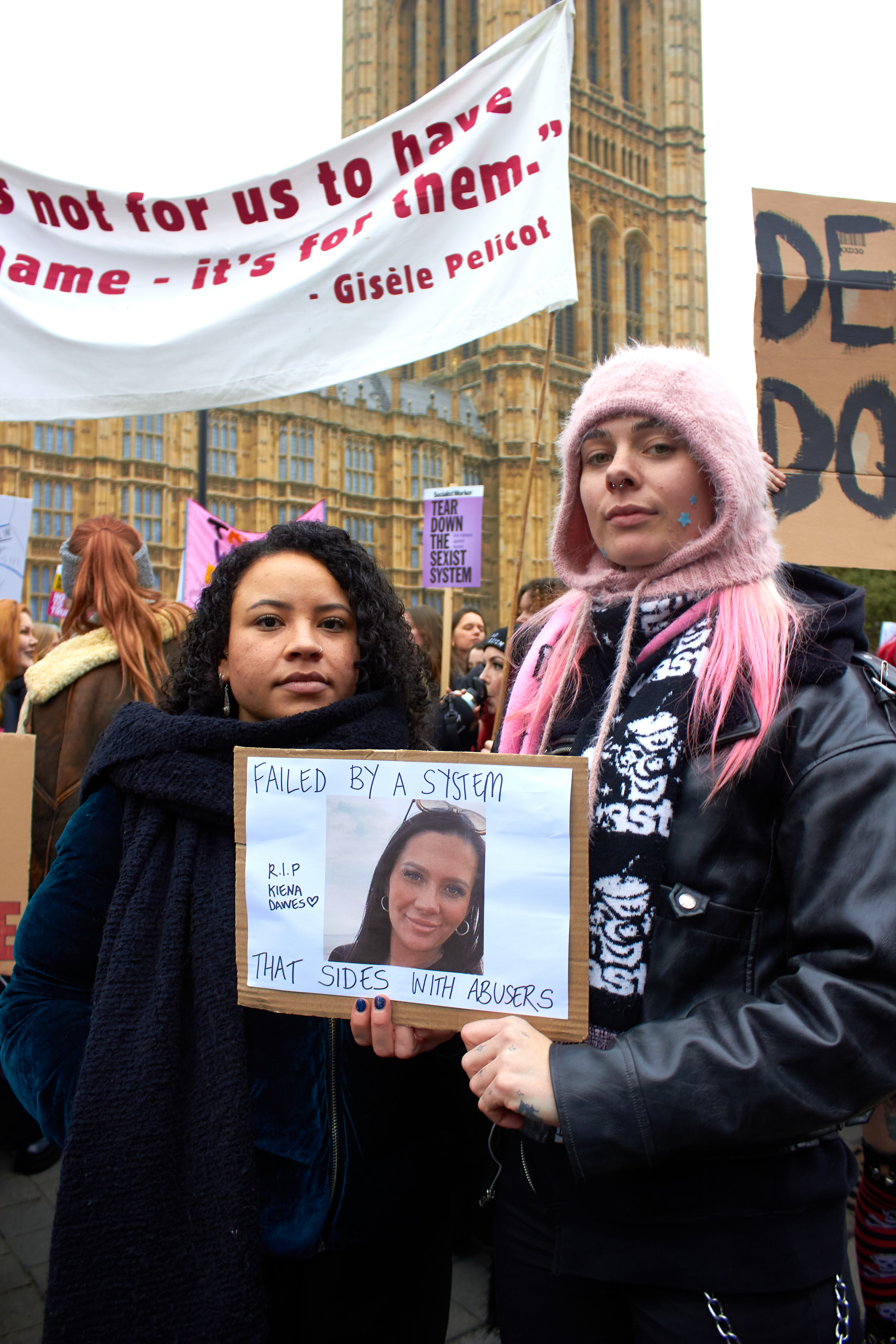
Protesters at the London Women's March
We don’t define our success through patriarchal structures. We define it through our willingness to get up and fight another day, no matter what.
Gloria Steinem speaking to Deborah Frances-White
It’s a sentiment that Deborah Frances-White of The Guilty Feminist shares: “We will have to do a lot of protesting in the next four years and beyond. It feels as if we are exhausted already”.
Frances-White turns to Gloria Steinem when her motivation wanes: “I think of Gloria Steinem who spent decades fighting for national abortion rights in the US. Imagine a large part of your legacy being overturned when you’re 88 years old.” Yet when Frances-White spoke to the feminist icon, Steinem was surprisingly tranquil, calm, even.
“Her answer floored me,” says Frances-White: “She told me that we had abortion before Roe, we had it during Roe (in places that restricted access) and we will continue to have it after Roe, because we have the sisterhood.” Steinhem told Frances-White that we don’t define our success through patriarchal structures, “We define it through our willingness to get up and fight another day, no matter what.”
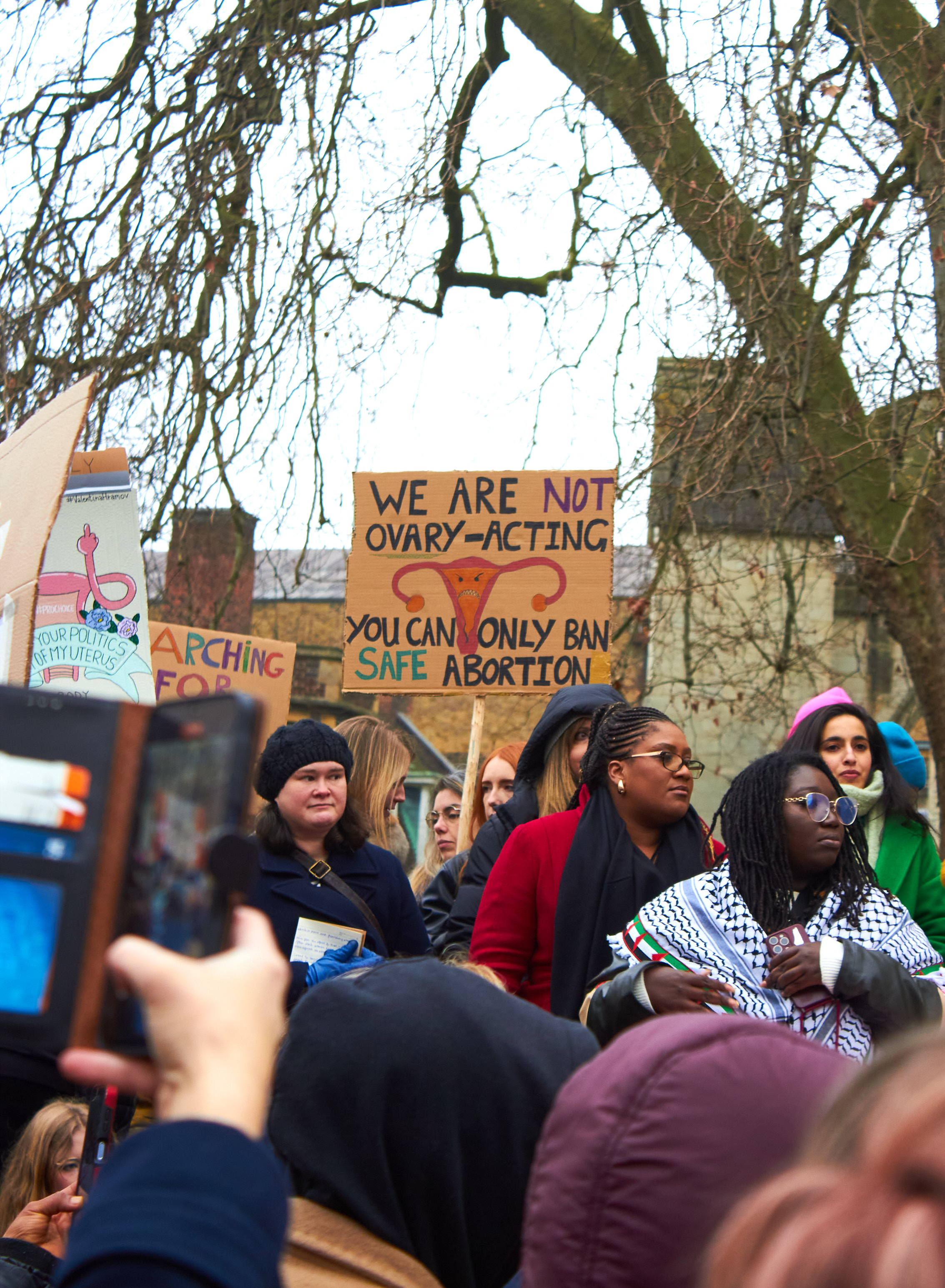
Protesters at the London Women's March
Perhaps after years of angry protesting and painful setbacks, a quieter form of protest is on the rise. We can see it in Michelle Obama’s refusal to attend Trump’s inauguration and United States Representative Alexandria Ocasio-Cortez’s absence, too. Although the latter did take to social media to declare her reasons for not attending: “I don’t celebrate rapists”.
We can’t ignore the bitter truth that Trump, along with several of his cabinet nominees, has been accused of a slew of sexual misconducts including harassment and assault. Moreover, he won’t face charges for any of the 34 felony charges he’s been convicted of or the fact that a judge found E Jean Carroll’s claim that he sexually assaulted her to be “substantially true”.
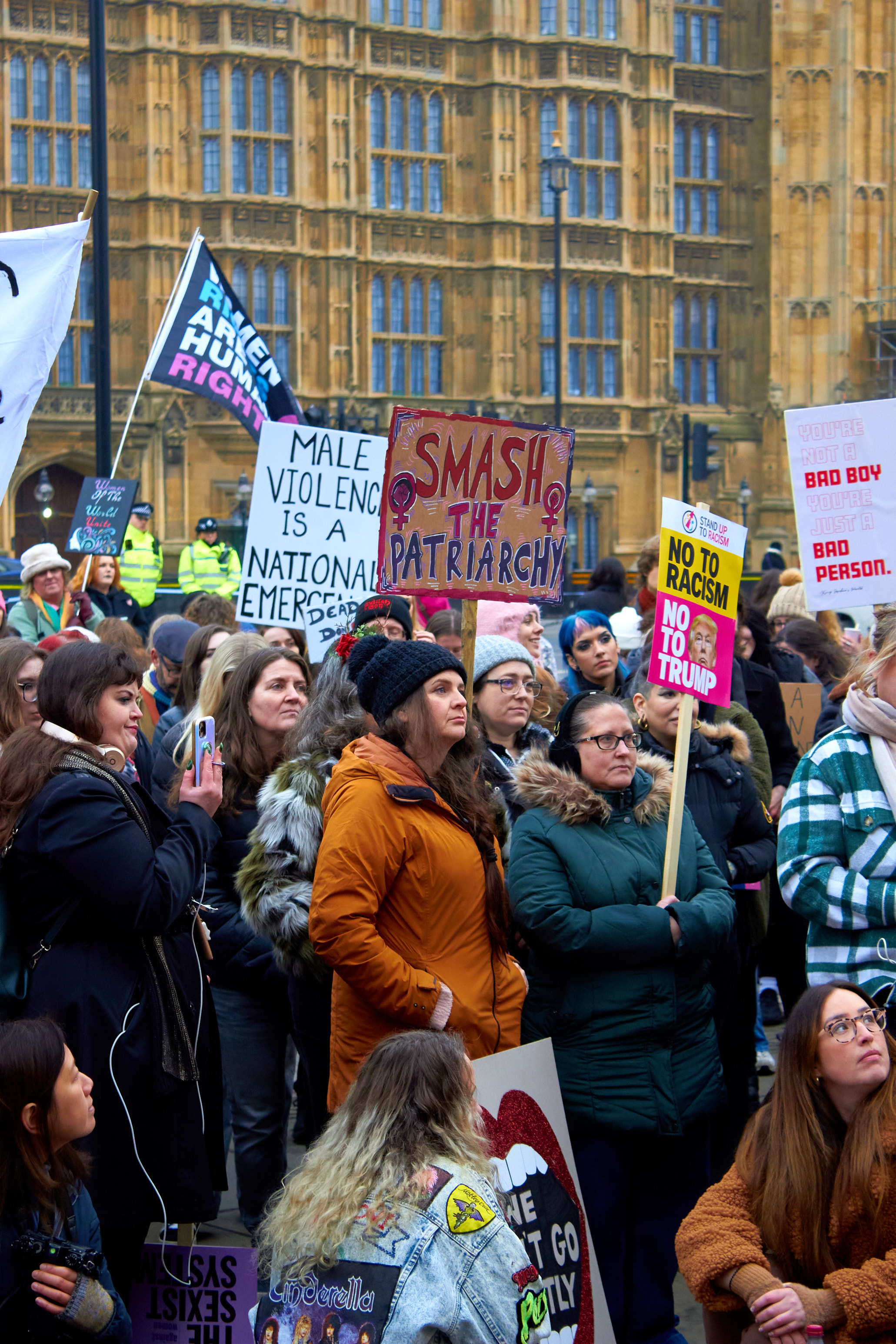
Protesters at the London Women's March
This is a huge slap in the face for women all over who universally are impacted by shamefully low prosecution rates. And yet, despite a growing normalisation of misogyny and gender-based violence, women and allies are still fighting for justice and equity.
“I marched because of my own personal history with sexual assault, rape, childhood sexual abuse, and childhood domestic violence as a witness and a victim,” Jade Wade, from Sheffield, tells me. Wade says she was failed by the police when she reported her assaults, which were all dropped before they reached The Crown Prosecution Service. Despite this, she has found support and solidarity from women engaged in the sector who she says have “advocated for me and held my hand through the process of reporting to the police”.
This is the sisterhood Gloria Steinhem was speaking of and it will take more than the Manosphere to erode that.
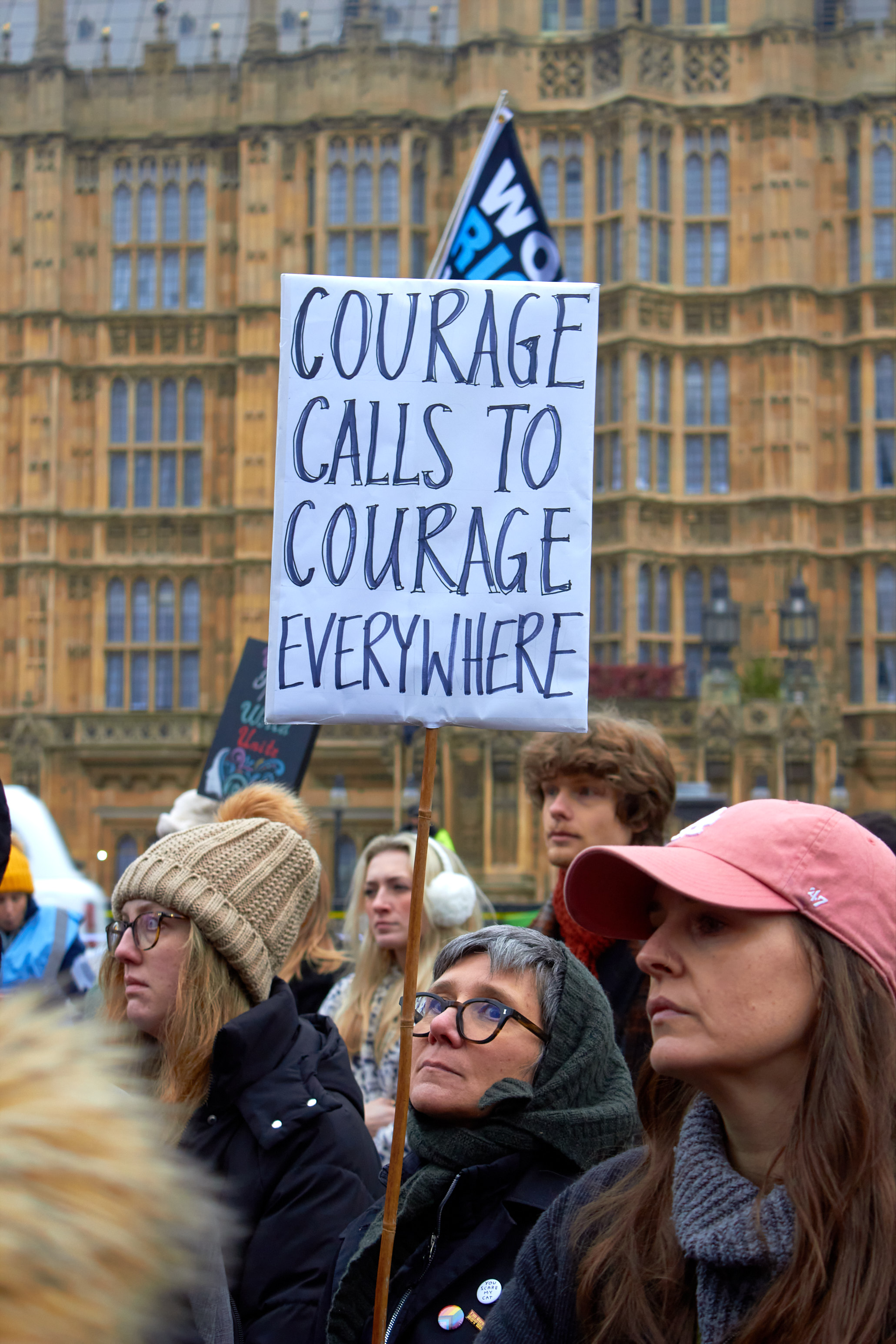
Protesters at the London Women's March
So while there’s no denying that Donald Trump is back (did he ever really leave?) the mood isn’t as defeatist as I first thought. “The crowd was smaller but the energy was much more focused and electric, helped by the banners and the wonderful SambaSistersCollective”, says Emmott. Adds Hatch: “There was joy, solidarity and resistance from all the women and allies attending the march on the weekend.”
The fight is far from over.

Mischa Anouk Smith is the News and Features Editor of Marie Claire UK.
From personal essays to purpose-driven stories, reported studies, and interviews with celebrities like Rosie Huntington-Whiteley and designers including Dries Van Noten, Mischa has been featured in publications such as Refinery29, Stylist and Dazed. Her work explores what it means to be a woman today and sits at the intersection of culture and style. In the spirit of eclecticism, she has also written about NFTs, mental health and the rise of AI bands.